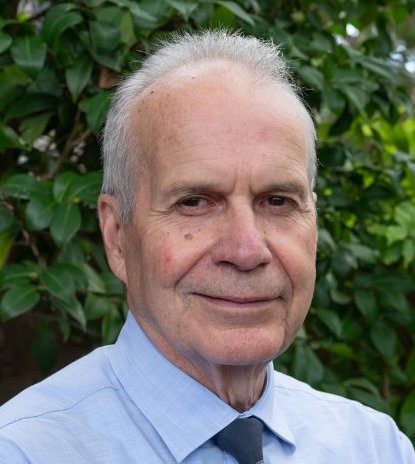Australian CPAP pioneer physician wins major award
 Sydney sleep medicine researcher Professor Colin Sullivan is the recipient of the Sleep Research Society’s 2021 Outstanding Scientific Achievement Award for novel and seminal discoveries of a basic, clinical or theoretical nature that have made a significant impact on the sleep field.
Sydney sleep medicine researcher Professor Colin Sullivan is the recipient of the Sleep Research Society’s 2021 Outstanding Scientific Achievement Award for novel and seminal discoveries of a basic, clinical or theoretical nature that have made a significant impact on the sleep field.
Professor Sullivan is widely recognised as a pioneer in sleep medicine, having developed nasal CPAP in 1980 for sleep apnoea and also been involved in the development of non-invasive ventilation during sleep to manage respiratory failure.
He has held posts at Sydney University and a consultant physician with the Children’s Hospital at Westmead and the Sydney Children’s Hospital in Randwick.
The SRS said :”Beyond the identification of the significant influence of sleep on breathing, his major scientific achievements have included the characterization of the pathophysiology of adult sleep apnoea;; the recognition of the extent of upper airway obstruction in infantile apnoea; the development of human fetal monitoring technology, and the discovery of the mechanism of sleep-induced worsening of blood pressure in pre-eclampsia.”
Respiratory nurses lack competence in inhaler technique
There’s a big mismatch between confidence respiratory nurses have in their inhaler technique and their actual ability, research finds.
The study which assessed the technique of 25 respiratory nurses working at Westmead hospital in Sydney found that while most (84%) felt confident in teaching inhaler technique, their overall demonstrated ability to correctly use inhalers was poor, especially for less frequently prescribed devices.
The group mean score for competence with using 8 different inhaler devices was less than 50%.
Participants demonstrated greatest competence with pressurised metered dose inhaler (pMDI) and spacer device whereas the lowest score was recorded with the Respimat device.
“Our study suggests that nurses need to be more self-aware of their practice and take responsibility for maintaining competence with inhaler device technique through regular training and competency assessments which allows them to retain and refresh their knowledge and skills,” the researchers concluded.
Mental health a common issue in chronic respiratory disease
Mental health conditions are common in people with severe chronic lung disease and are associated with worse respiratory outcomes, Australian research shows.
The retrospective study of 228 patients attending the Advanced Lung Disease Service at the Royal Melbourne Hospital, 119 patients (52.2%) had a co-existing mental health diagnoses.
Patients with mental health diagnoses were significantly younger, more likely to be female, have significantly lower FEV1, more comorbidities and were more likely to have acute respiratory admissions compared to people without mental illnesses.
Psychotropic medications were often the first‐line treatment approach and non‐pharmacological approaches such as referrals to psychologists, were less frequently recommended and accepted by patients.
“Possible strategies to improve the psychological wellbeing of people with chronic lung diseases include an enhanced focus on mental health in both primary and secondary care and multidisciplinary collaborative models of mental healthcare that are easier for patients, carers and clinicians to navigate,” wrote the authors led by Dr Natasha Smallwood from the Royal Melbourne Hospital, Melbourne in the Internal Medicine Journal.
“Additional solutions include actively screening for mental health comorbidities using questionnaires such as the Hospital Anxiety Depression Scale and including psychologists in collaborative multidisciplinary, chronic, respiratory disease team,” they added.